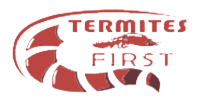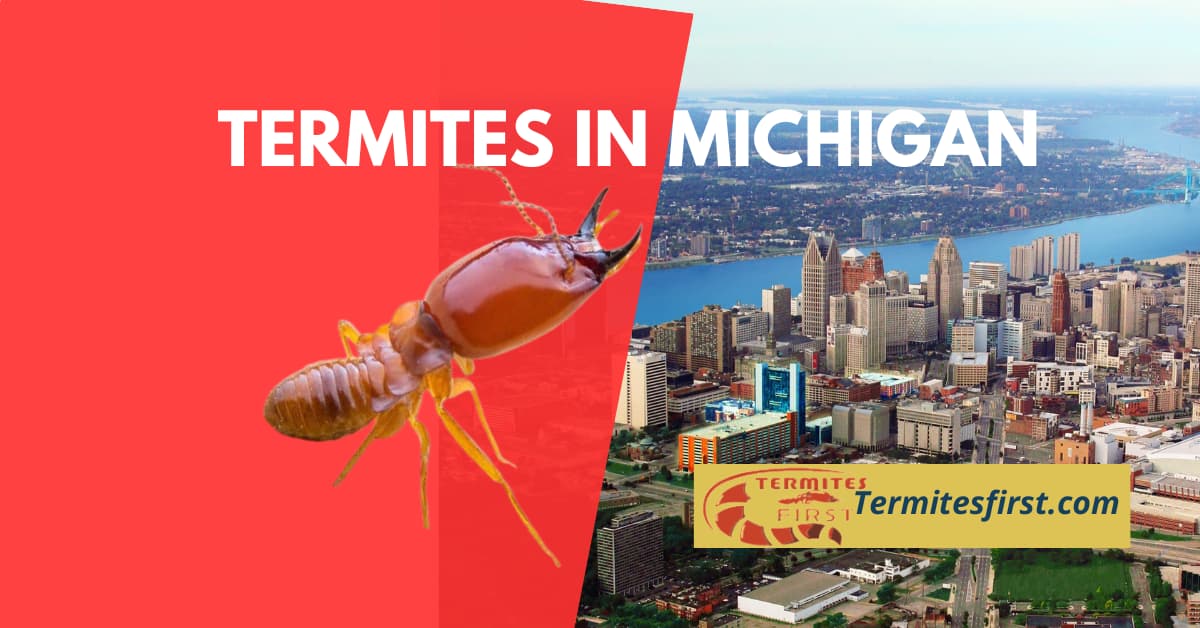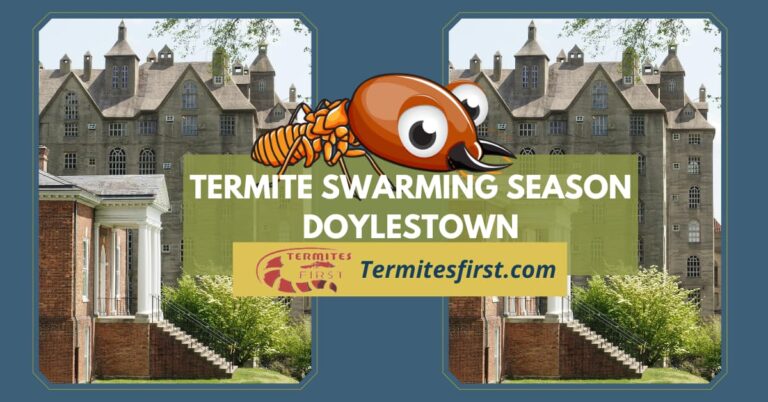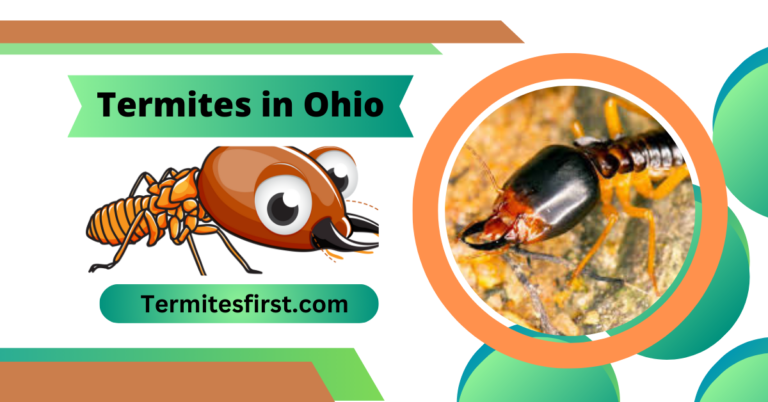Termites in Michigan: Essential Identification and Management Tips
Termites in Michigan are more than just destructive wood pests; they pose a serious threat to homes and structures, unlike ants and other insects in Farmington. I’ve seen firsthand how termite infestations and individual termites can cause significant damage if left unchecked, including termite infestation damages from these insects. Michigan’s climate, with its humid summers, creates the perfect environment for insects and termites to thrive.
Historically, many homeowners were unaware of the risks posed by termites until it was too late. I want to share essential information about identifying winged termites, effective termite prevention, subterranean termite control measures, and preventing infestations. Understanding their behavior and habits, especially regarding subterranean termite and damp wood termite, is crucial for protecting my home from termite infestation probability zones. By being proactive, I can save myself from costly termite repairs and stress down the road. Let’s dive into what you need to know about termites in Michigan.
Key Takeaways
- Termites are present in Michigan, making awareness crucial for homeowners and property managers.
- Understanding termite characteristics and behavior can help you spot them early, preventing severe damage.
- The potential problems caused by termites include structural damage and costly repairs, emphasizing the need for proactive measures.
- Identifying a termite problem involves looking for signs like mud tubes, discarded wings, and hollow-sounding wood.
- Utilize pest management resources available in Michigan for termite issues to get professional help and effective treatment options.
- Regular inspections can save you money and stress by catching termite issues before they escalate.
Termite Presence in Michigan
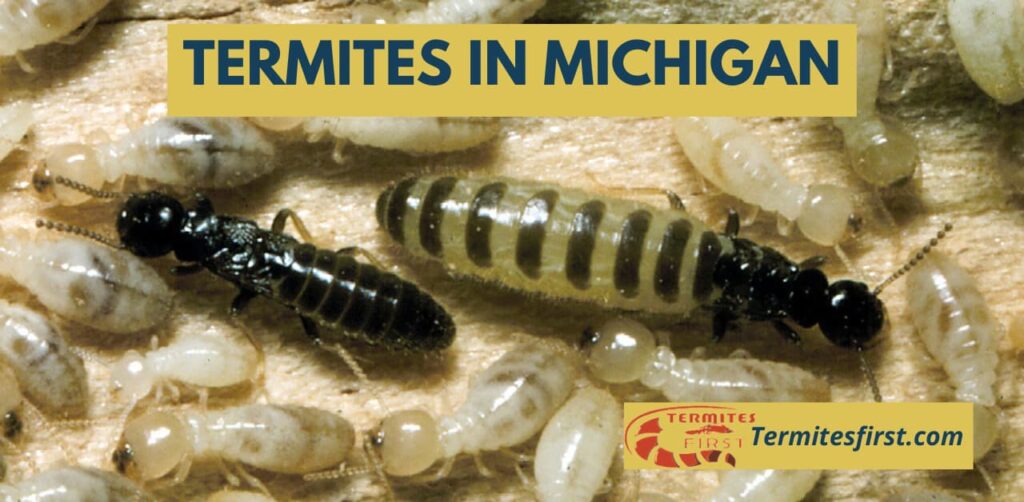
Are Termites in Michigan
Termites exist throughout Michigan, just like in many other states. I have noticed that southern counties, such as Wayne and Washtenaw, experience higher termite activity than northern regions.
This is mainly due to the warmer climate in the south, which attracts termite activity. Homeowners should be aware of termite presence. Recognizing the signs early can prevent costly damage.
Types of Termites Found
The most prevalent species in Michigan is the Eastern Subterranean Termite. These termites thrive in moist soil and wood. Occasionally, Drywood Termites appear, especially in furniture. However, these termites are not native to Michigan.
They can be introduced through transport, often unknowingly. I remember a friend who discovered Drywood Termites after moving into a new home. It was a wake-up call about checking for termites and pests before settling in.
Eastern Subterranean Termites
Eastern Subterranean Termites prefer moist environments, making basements and crawl spaces ideal habitats. Their termite colonies can number in the millions, which is impressive yet concerning. These termites play a crucial role in breaking down cellulose from dead plants and trees.
This contributes to ecosystem health by recycling nutrients back into the soil, termite activity included. I find it fascinating how these small creatures, like the termite, impact our environment significantly.
Formosan Termites Presence
Formosan Termites are rare in Michigan but might appear due to human activity. They are known for their aggressive nature and rapid colony growth if introduced, termite. Homeowners need to remain vigilant even for less common termite species.
A single termite colony can cause extensive damage quickly if not addressed promptly. I always recommend regular inspections for homeowners to catch any potential termite issues early on.
Characteristics and Behavior
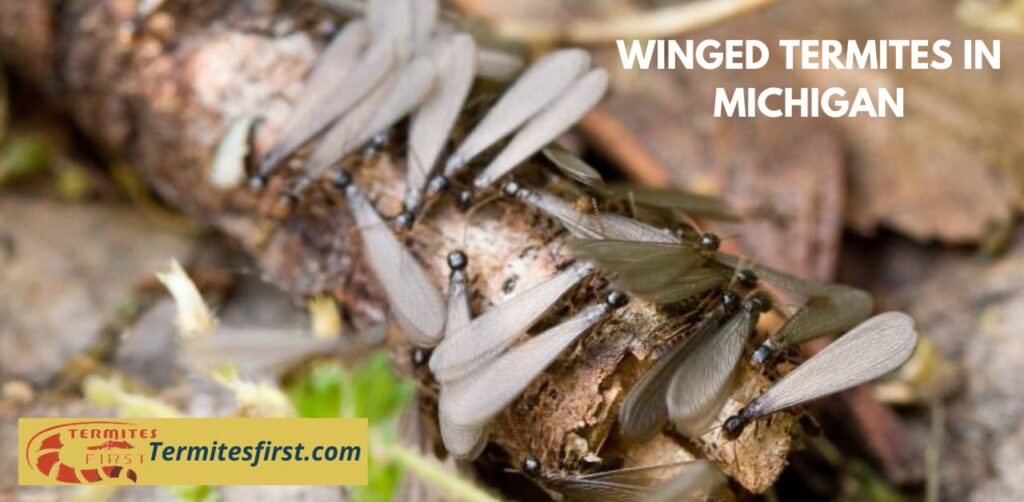
Termite Life Cycle
Termites go through several stages in their life cycle. They start as termite eggs, which usually hatch within a few weeks. After hatching, they become nymphs. Nymphs resemble small adults but lack wings. This stage lasts for several months.
As nymphs mature, they develop into adults. Adult termites can reproduce, and a single colony can produce thousands of eggs each year. The environment influences the duration of these stages. Factors like temperature and humidity play a crucial role in termite development. I find it fascinating how a small termite colony can grow rapidly under the right conditions.
Swarming Season Insights
In Michigan, the typical swarming season for termites occurs in spring. Swarming usually takes place when termite temperatures rise above 70°F with high humidity levels. These conditions trigger termites to leave their colonies in search of new locations.
Swarming is significant for colony expansion. It allows termites to establish new colonies and spread further into areas with wood resources. Observing swarms can be alarming for homeowners. I remember seeing a swarm of termites near my home once; it was surprising to see so many insects at once.
Signs of Infestation
Homeowners should be aware of common signs of termite infestations. Mud tubes are one indicator that termites are active. These termite tubes serve as protection while they travel between their nest and food sources. Discarded wings are another sign; after swarming, termites shed their wings.
Inspecting areas near wood and soil for termite activity is essential for early detection. Termites thrive on wood, making homes particularly vulnerable if not checked regularly. I often check my basement and crawl spaces because these areas can hide signs of termite activity easily. Regular inspections can prevent severe damage.
Potential Problems in Michigan
Common Issues Faced
Dealing with termite infestations can be a major inconvenience. Once they invade, homeowners often face significant challenges. I remember when my neighbor discovered termites in their home. It was stressful for them to manage the situation.
The urgency of addressing an infestation cannot be understated. If left unchecked, repair costs can skyrocket. Quick action is essential to avoid escalating expenses. Emotional stress can also weigh heavily on homeowners facing termite pest problems. The worry about termite damage and financial loss can be overwhelming.
Structural Damage Risks
Termites pose serious risks to a home’s structure over time. Left untreated, termite infestations can cause severe damage to critical elements of a building. Termite beams, flooring, and even walls may suffer from their relentless eating habits.
For instance, a home in my area had to undergo extensive repairs because of a hidden termite problem. The owners faced thousands of dollars in costs due to compromised structural integrity from termite damage. Timely intervention is vital to prevent such extensive repairs. Regular inspections for termite issues can help catch problems before they escalate into costly fixes.
When Termites Are Active
Termite activity peaks during warmer months, especially in Michigan’s summer heat. This is when they are most likely to swarm and seek new nesting sites. However, some species remain active year-round under certain conditions.
Homeowners should not let their guard down after spring ends. I’ve noticed that being vigilant throughout the year helps catch potential infestations early. Regular checks around the home can save time and money later. Awareness of their activity patterns is key to effective prevention.
Identifying a Termite Problem
Home Inspection Tips
Regular home inspections are essential to identify potential termite entry points. I often recommend checking areas like crawl spaces and basements. These spots can be vulnerable to infestations.
Moisture issues attract termites to homes. Inspecting for leaks or standing water can help prevent a termite pest problem. I’ve found that maintaining proper drainage around the home is key.
Homeowners should also look for signs of previous infestations during inspections. This includes discarded wings or mud tubes, which indicate active or past termite infestations. Keeping an eye on these details makes a big difference.
Recognizing Damage Signs
Specific signs of damage caused by termites include hollow-sounding wood. Knocking on wooden structures can reveal if they are compromised. Subtle signs like small holes in wood may go unnoticed but can signal a serious issue.
Recognizing these subtle signs is crucial before they escalate into major problems. Severe termite damage can lead to costly repairs. I always advise homeowners to document any signs of damage for pest control consultations. This documentation helps professionals assess the situation better.
Tools for Detection
Tools like moisture meters and infrared cameras are effective for detecting hidden infestations. These devices can identify moisture levels that indicate termite activity. I have used these tools in my own inspections and found them very helpful.
Using professional-grade equipment ensures accurate assessments of your property. Homeowners should consider hiring experts who use these advanced tools. Early detection is vital in preventing future termite infestations.
In Michigan, being proactive about termite control measures is essential. Understanding how to identify a termite infestation can save you time and money in the long run.
Pest Management Resources
Professional Pest Control Options
Hiring professional pest control services offers many benefits. These experts have the training and tools to handle termite infestations effectively. Local companies understand the specific types of termites common in Michigan. They know how to treat these pests efficiently. I have seen firsthand how professional help can save homeowners from extensive damage.
Homeowners should seek multiple quotes before making a decision. Comparing services helps find the best value. It also allows you to gauge different companies’ approaches to pest problems. Reading reviews can provide insight into their effectiveness and customer service.
DIY Prevention Methods
Preventing termite infestations requires practical steps. Reducing wood-to-soil contact is crucial. Keeping wooden structures elevated minimizes the risk of termites accessing them. Proper drainage around the home is also important. Moisture attracts termites, so managing water flow can deter them.
Sealing cracks and crevices in your home is another effective method. Small openings allow pests easy access. By blocking these entry points, you create a barrier against potential infestations. I always check my home for any gaps or holes after heavy rains, as this is when moisture levels rise.
Local Support Services
Local pest control services are readily available throughout Michigan. Solidified Pest Control is one example of a company that provides targeted assistance. They serve various areas, including Detroit and Grand Rapids, ensuring help is nearby.
Homeowners can reach out for advice on managing pest issues. Many local experts offer consultations to discuss specific concerns. This support can be invaluable in addressing any questions about treatments or prevention strategies.
Conclusion:-
Termites in Michigan can be a real headache. I’ve shared key insights on their presence, behavior, and the potential damage they can cause. Identifying a termite issue early is crucial for effective management. With the right resources, I can tackle these pests head-on.
I encourage you to stay vigilant and proactive. Regular inspections and swift action can save you from costly repairs down the line. Don’t let termites take over your home. Reach out to local pest management experts today for guidance. Protect your space and peace of mind!
FAQ’s:-
Yes, termites are present in Michigan. While they are not as prevalent as in warmer states, certain species still pose a risk to homes and structures.
The most common types of termites in Michigan are Eastern subterranean termites and drywood termites. Subterranean termites are particularly concerning due to their nesting habits.
Look for mud tubes, discarded wings, or damaged wood. If you notice these signs, it’s essential to consult a pest control expert for confirmation.
Termites can cause significant structural damage by eating through wood. This can lead to costly repairs and compromise the safety of your home.
To prevent infestations, keep wood piles away from your home, fix leaks promptly, and ensure proper ventilation in crawl spaces. Regular inspections are also beneficial.
If you discover termites, contact a licensed pest control professional immediately. Early intervention is key to minimizing damage and costs.
Yes, numerous pest management resources are available. Local extension services and pest control companies offer guidance on prevention and treatment options tailored to Michigan’s environment.
